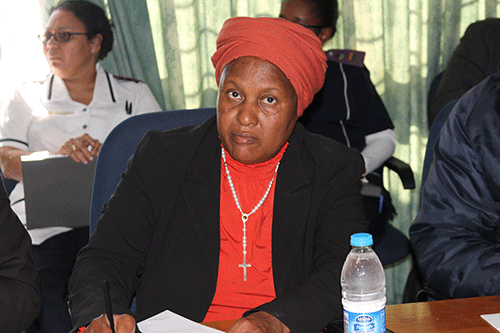Contributing to a motion in the National Assembly on Tuesday, Popular Democratic Movement (PDM) parliamentarian Elma Dienda made it clear that government’s electricity debt should not be written off, particularly for offices, ministries and agencies (OMAs) that have been in arrears for years.
“No ministry debt must be written off. They must pay! We must lead by example. You are doing a disadvantage to our people. People are suffering because of you, you are taking the money that is meant for electricity and buying cars while ordinary vulnerable people in the country are suffering,” she lamented.
Dienda was adding to a motion by Landless Peoples Movement (LPM) Henny Seibeb on utility debt write-off for local authorities.
Dienda noted it must be made clear when approving ministry budgets, especially when it comes to water and electricity payoffs.
She said about 56% of Namibians have access to electricity and of that percentage, 90% are making use of prepaid electricity.
The parliamentarian said Tses in the //Kharas region: “All residents are on prepaid electricity and the bill of Tses stand at N$6 million with a population of about 2 500”.
She stated the biggest culprits are the ministry of health, safety, education, agriculture and the village council.
According to her, it is imperative that leaders concentrate on rates and taxes in such societies, saying many people there are vulnerable and live in questionable conditions.
Dienda said from the 2 500 residents only 20% are employed and the village is inhabited by mostly pensioners and single mothers.
Tabling his motion, Seibeb stated electricity debts stand at about N$1.9 billion.
He listed some causes that contribute to the accumulation of debt upon the local authorities, these include: “The poor management of electricity revenues, where funds from electricity are often used to finance operational expenses of councils. Moreover, there is also the inability to pay for the services, especially in village councils, as well as in informal settlements, that have often overtaken the formal settlements in urban areas”.
He added the overwhelming majority of local authorities are buckling under the excessive weight of monthly debt servicing.
Due to the debt settlement arrangements, Seibeb said local authorities are unable to expand local development opportunities and must first prioritise debt settlement. This indebtedness, according to the LPM parliamentarian, therefore, stunts the already limited finances of the local authorities for investment in actual development projects.


